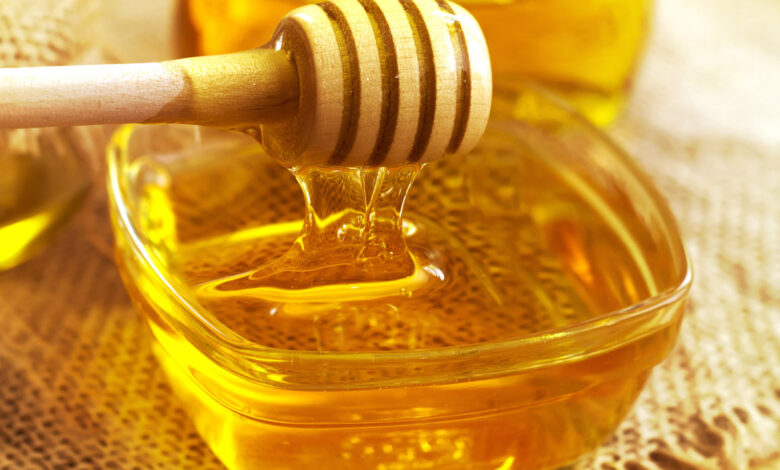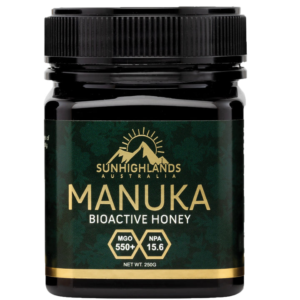
When it comes to natural remedies, few substances have gained as much admiration and intrigue as Manuka honey. Sourced from the pristine landscapes of New Zealand, this unique honey has been celebrated not only for its rich taste but also for its remarkable health benefits. Its ability to aid digestion, boost immunity, and soothe skin conditions has made it a staple in many households. If you’ve been searching for the best Manuka honey understanding what makes this product so special—and how to choose the right type—will make all the difference.
What is Manuka Honey?
Manuka honey is derived from the nectar of the Manuka tree (Leptospermum scoparium), native to New Zealand. This tree’s nectar contains potent antibacterial properties, setting Manuka honey apart from regular honey varieties. While honey has long been known for its health benefits, Manuka’s unique properties, particularly its high concentration of methylglyoxal (MGO), elevate it to superfood status.
Manuka honey is graded on a Unique Manuka Factor (UMF) scale, which measures its concentration of beneficial compounds like MGO and leptosperin. The higher the UMF or MGO rating, the more potent the honey is in terms of antibacterial and healing properties. But with different varieties available, selecting the right Manuka honey can be overwhelming. Let’s explore why this honey is so sought after and what makes certain types stand out.
The Healing Powers of Manuka Honey
What truly sets Manuka honey apart is its impressive range of health benefits. For centuries, honey has been used as a natural remedy for wounds and burns, but Manuka honey takes these healing properties to a whole new level. Thanks to its antibacterial and antimicrobial compounds, Manuka honey can effectively fight off harmful bacteria, making it a powerful agent for wound care.
Beyond healing wounds, Manuka honey has been shown to support gut health, offering relief for those suffering from gastrointestinal issues such as acid reflux, gastritis, and irritable bowel syndrome (IBS). The honey’s ability to reduce inflammation, balance gut flora, and promote overall digestive wellness has made it a favorite among those seeking natural alternatives to over-the-counter medicines.
Additionally, Manuka honey’s high antioxidant levels help combat free radicals, support skin regeneration, and reduce the appearance of scars. It is also praised for its anti-inflammatory effects, which can reduce skin redness and swelling caused by acne, eczema, and other skin conditions.
The Potency of MGO in Manuka Honey
While all honey has some antibacterial properties, what makes Manuka honey so special is its high concentration of methylglyoxal (MGO), a compound responsible for its powerful antibacterial activity. MGO levels in Manuka honey can vary greatly, which is why certain varieties are more potent than others. This brings us to the significance of higher-grade Manuka honey, particularly MGO 550 Manuka honey.

Manuka honey with an MGO rating of 550 or higher is considered exceptionally potent, ideal for individuals seeking a more concentrated, therapeutic dose of its healing properties. MGO 550 Manuka honey is often used in topical applications for wound care, as it delivers powerful antibacterial protection. It’s also a go-to for people who want to support their immune system naturally, making it an ideal option during cold and flu season or when fighting off infections.
Manuka honey with an MGO rating of 550 or above is often associated with the highest UMF ratings, typically UMF 15+ or 20+, indicating a high concentration of the beneficial compounds that give Manuka honey its medicinal qualities. For those seeking premium-grade honey with maximum health benefits, MGO 550 Manuka honey is an excellent choice.
Choosing the Right Manuka Honey for Your Needs
With so many options available, finding the right Manuka honey can be a bit of a challenge. Here are a few factors to consider when choosing the right type for your needs:
- MGO Rating: As mentioned earlier, the MGO rating is one of the most critical indicators of the honey’s potency. The higher the MGO rating, the stronger the antibacterial properties. If you’re using Manuka honey for wound care or to fight infections, opt for a higher MGO rating, such as MGO 550 Manuka honey. For daily consumption or general wellness, a lower rating around MGO 100-250 should suffice.
- UMF Certification: The Unique Manuka Factor (UMF) is another important certification to look for. This rating ensures that the honey has been independently tested and meets the required standards for purity and potency. A UMF rating of 10+ or higher is recommended for therapeutic use.
- Raw vs. Processed: Whenever possible, choose raw Manuka honey. Raw honey retains all of its natural enzymes, antioxidants, and nutrients, whereas processed honey may lose some of its beneficial properties during the heating and filtering process.
- Origin: To ensure you’re getting genuine Manuka honey, always check the label for its country of origin. Authentic Manuka honey comes exclusively from New Zealand, where the Manuka tree grows. Some producers may blend Manuka with other types of honey, diluting its potency. For the best results, choose 100% pure New Zealand Manuka honey.
- Packaging: Manuka honey is sensitive to light and heat, so it’s essential that it’s stored in dark, airtight containers. This will preserve its potency and ensure that it remains effective for an extended period.
How to Incorporate Manuka Honey into Your Life
Manuka honey isn’t just for wound care or medicinal use; it’s also a delicious and nutritious addition to your daily diet. Here are some simple ways to incorporate Manuka honey into your life:
- Daily Spoonful: Many people take a spoonful of Manuka honey straight from the jar each morning to boost their immune system and aid digestion.
- Tea Sweetener: Stir a teaspoon of Manuka honey into your tea for a natural sweetener with added health benefits. Just make sure your tea has cooled slightly before adding the honey to preserve its enzymes.
- Smoothie Booster: Add a spoonful of Manuka honey to your smoothie for an antioxidant-rich, immune-boosting treat.
- Topical Application: For those suffering from acne, eczema, or minor wounds, applying Manuka honey directly to the affected area can speed up healing and reduce inflammation.
- Natural Sweetener for Recipes: Manuka honey can be used in various recipes in place of regular sugar. Try it in baked goods, salad dressings, or even drizzled over yogurt or fruit for a nutritious twist.
Conclusion: A Superfood Worth the Hype
From its potent antibacterial properties to its immune-boosting capabilities, Manuka honey truly is a superfood worth trying. Whether you’re searching for the best Manuka honey to support your overall health or looking for a therapeutic option like MGO 550 Manuka honey for specific needs, this natural remedy is an excellent addition to any wellness routine. Not only is it delicious, but its health benefits are backed by scientific research, making it a coveted product for those who prioritize both taste and health.




